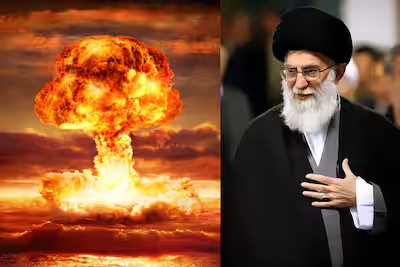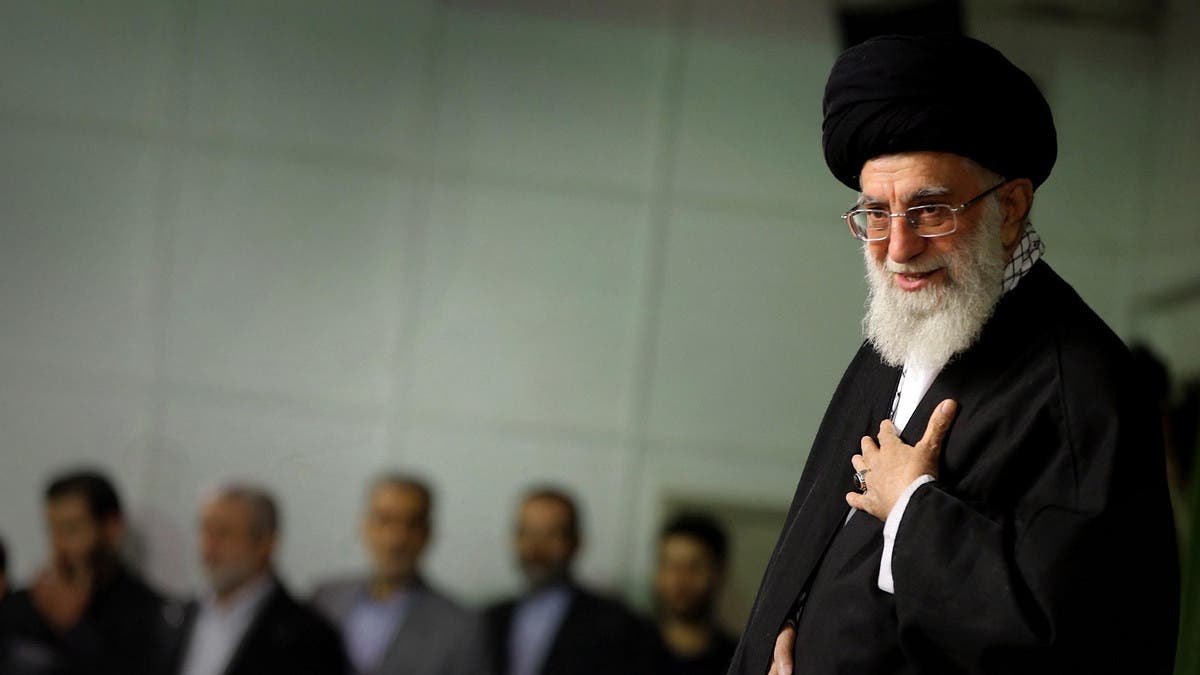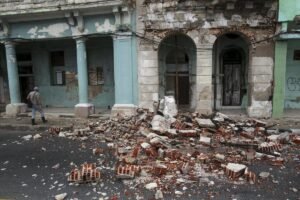
New Delhi: An earthquake of moderate intensity occurred in Iran and Israel on Saturday night, October 5. Strangely enough, both the countries experienced the earthquake at a marginal difference in the timing. In such a situation, it is being speculated whether Iran has conducted its nuclear test.
The earthquake occurred in the Aradan city of Semnan province in Iran. Its intensity was 4.5 on the Richter scale.
The earthquake occurred at around 10:45 pm local time and its epicentre was at a depth of only 10 kilometers from the ground. The tremors were felt in Tehran which is 110 kilometers away from the epicenter of the earthquake, reports the US Geological Survey.

Earthquake reported in Israel shortly after Iran
A few minutes later, an earthquake was reported from Israel. According to the report of the European Mediterranean Seismic Center (EMSC), this earthquake occurred around 12 o’clock but its intensity remained very low.
Given the intense state of conflict between Iran and Israel, people have started linking the earthquakes in these two countries with Iran’s nuclear tests on social media. There have been speculations in many reports that it was not an earthquake rather Iran conducted underground nuclear tests due to which a shock was felt in both the countries.
Nuclear test or earthquake?

A report claimed that the earthquake in Iran occurred very close to the nuclear power plant, so it cannot be said whether the shock was due to an earthquake or a nuclear test.
Another report has claimed that the earthquake in Iran could be an underground nuclear test because its center was at a depth of only 10 km from the ground. In such a situation, the speculation about Iran’s nuclear test has deepened.
Iran-Israel hostilities
![]()
Actually, the earthquakes in Iran and Israel occurred amidst the boiling tensions between the two Middle East countries. After the alleged killing of Hezbollah leader Hassan Nasrallah and Hamas leader Ismail Haniyeh, Iran rained about 400 missiles on Israel on October 1.
Israel has vowed strong retaliation following the Iranian attack.
Public Speculation on social media
Immediately following the event, social media was abuzz with users linking this seismic activity to potential nuclear tests. Some pointed towards the proximity of the earthquake’s epicenter to known or suspected nuclear facilities in Iran. Speculation was further fueled by the ongoing conflicts and tensions between Iran and Israel, with many users suggesting that this could be a covert nuclear test signaling Iran’s military capabilities.
Nuclear Test Analysis
- Technical Feasibility: Underground nuclear tests, especially at the scale suggested by the seismic activity, are technically possible but would require significant preparation. Iran’s known nuclear sites, like Natanz, have been fortified deep underground, indicating a capability for such activities. However, the depth of this particular event and its magnitude don’t unequivocally confirm a nuclear test due to the complexity involved in containing nuclear explosions at such depths without causing surface disruption.
- Political Context: The political climate, marked by heightened tensions with Israel and the U.S., adds fuel to the speculation. Iran’s advancements in its nuclear program, as noted by international observers, have significantly reduced the breakout time for acquiring weapons-grade material, intensifying global concerns.
- Diplomatic and Military Responses: There’s been no immediate claim or confirmation from Iran regarding a nuclear test. Conversely, there’s also been no immediate international condemnation or military response that one might expect following a confirmed nuclear test, which typically would prompt reactions from bodies like the UN or specific nations like the U.S. or Israel.

Counterarguments for a Natural Earthquake
- Seismological Normality: Iran sits on major fault lines, making it one of the most earthquake-prone countries. Therefore, natural seismic activity is not unusual.
- Lack of Immediate Evidence: No radioactive fallout or other signs typically associated with a nuclear test have been reported. Moreover, the seismic signature, while suggestive, isn’t definitive without further geological and possibly on-the-ground analysis.
Overall, The question of whether Iran conducted an underground nuclear test on Saturday night remains unanswered by concrete evidence. While speculation on social media platforms like X can spread rapidly, offering a platform for both informed discussion and misinformation, the immediate aftermath suggests a natural occurrence rather than a nuclear event. However, this incident underscores the ongoing concerns regarding Iran’s nuclear capabilities and the geopolitical tensions that amplify even natural phenomena into potential signals of conflict escalation. As of now, without official statements or further scientific analysis, attributing the earthquake directly to a nuclear test remains in the realm of speculation. The global community watches, with bated breath, for any developments that might clarify the nature of this seismic event.
Discover more from
Subscribe to get the latest posts sent to your email.







